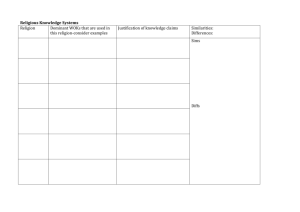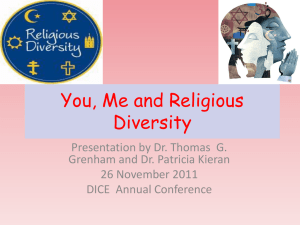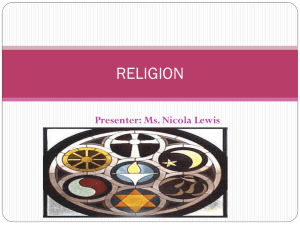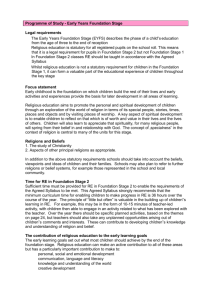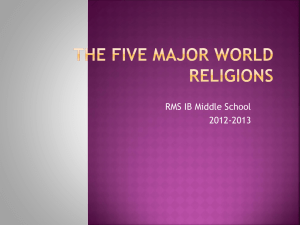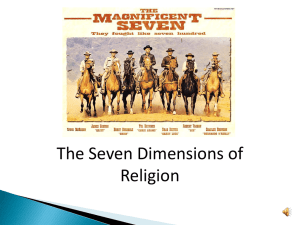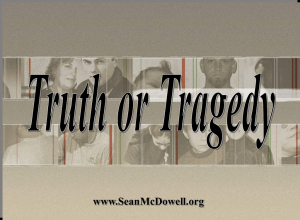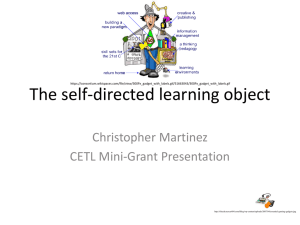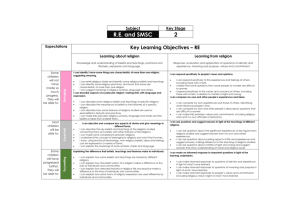HUMANITIES Position Paper
advertisement
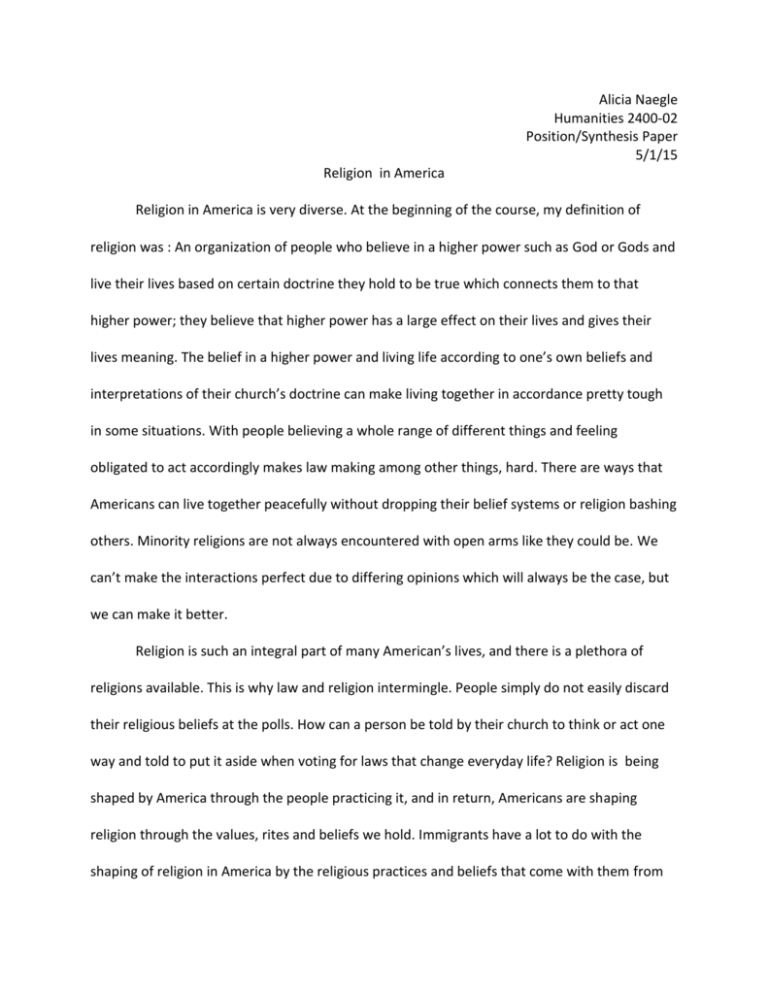
Alicia Naegle Humanities 2400-02 Position/Synthesis Paper 5/1/15 Religion in America Religion in America is very diverse. At the beginning of the course, my definition of religion was : An organization of people who believe in a higher power such as God or Gods and live their lives based on certain doctrine they hold to be true which connects them to that higher power; they believe that higher power has a large effect on their lives and gives their lives meaning. The belief in a higher power and living life according to one’s own beliefs and interpretations of their church’s doctrine can make living together in accordance pretty tough in some situations. With people believing a whole range of different things and feeling obligated to act accordingly makes law making among other things, hard. There are ways that Americans can live together peacefully without dropping their belief systems or religion bashing others. Minority religions are not always encountered with open arms like they could be. We can’t make the interactions perfect due to differing opinions which will always be the case, but we can make it better. Religion is such an integral part of many American’s lives, and there is a plethora of religions available. This is why law and religion intermingle. People simply do not easily discard their religious beliefs at the polls. How can a person be told by their church to think or act one way and told to put it aside when voting for laws that change everyday life? Religion is being shaped by America through the people practicing it, and in return, Americans are shaping religion through the values, rites and beliefs we hold. Immigrants have a lot to do with the shaping of religion in America by the religious practices and beliefs that come with them from their home countries. This makes for a very diverse religious culture and brings up the issue of how we encounter minority religions in America today. Minority religions such as the Sikhs, and Muslims are not always welcomed in today’s American society. The article “Supreme Court Looks At Abercrombie & Fitch's Hijab Discrimination Case” by Gene Demby on NPR news discusses an incident from seven years ago where a woman (Samantha Elauf) wearing a hijab to an interview with Abercrombie & Fitch was turned down due to her “cap.” The companies “Look Policy” was what they were using to discriminate against her religious beliefs just because she doesn’t look like other Americans who don’t wear hijabs(NPR). Another example of a negative way we encounter minority religions in America is after the events of 9-11-01. After this tragedy occurred, Sikh people were discriminated against as they wear a similar covering to the al-Qaeda terrorists. Not only are we ignoring everything about those religions, we are stereotyping the people who just “look” like them. This is wrong. Just because someone looks different or believes differently, there are ways to treat them like the human beings that we all are. No two people think alike which makes pluralism difficult. As mentioned earlier, we are a society full of religious diversity. Interacting between faiths can be challenging; discussions can be very heated. Also mentioned earlier is the fact that because we are all so different, there is no one way to interact perfectly. But a large part of making pluralism in America more successful is education. Religious Diversity is a large topic that needs to be discussed in depth and studied to make sense of the many traditions and beliefs of the religions present in America today. As these beliefs are discovered and discussed, we can be more understanding of the way others perceive their own super mundane reality. Educating ourselves is the first step to becoming more successful in the relationships we have with people of different faiths. In conclusion, religion is and always will be an central part of American life in one way or another. The percentage of people who claim no attachment to any particular religion is rising, but it seems that majority religions such as Christianity are not diminishing any time soon. This makes life quite interesting in the way we integrate religion into our everyday lives. Religion is a major source of disagreement, so it is up to us to learn all we can about how other religions (including minority religions) think and choose to live so we can respect one another. Education is key in becoming more unified as Americans on the most basic level. We do not have to agree with each other to coexist peacefully. References NPR. "Supreme Court Looks At Abercrombie & Fitch's Hijab Discrimination Case." NPR. NPR. Web. 1 May 2015. <http://www.npr.org/blogs/codeswitch/2015/02/25/388999509/supreme-court-looks-atabercrombie-fitchs-hijab-discrimination-case>.
